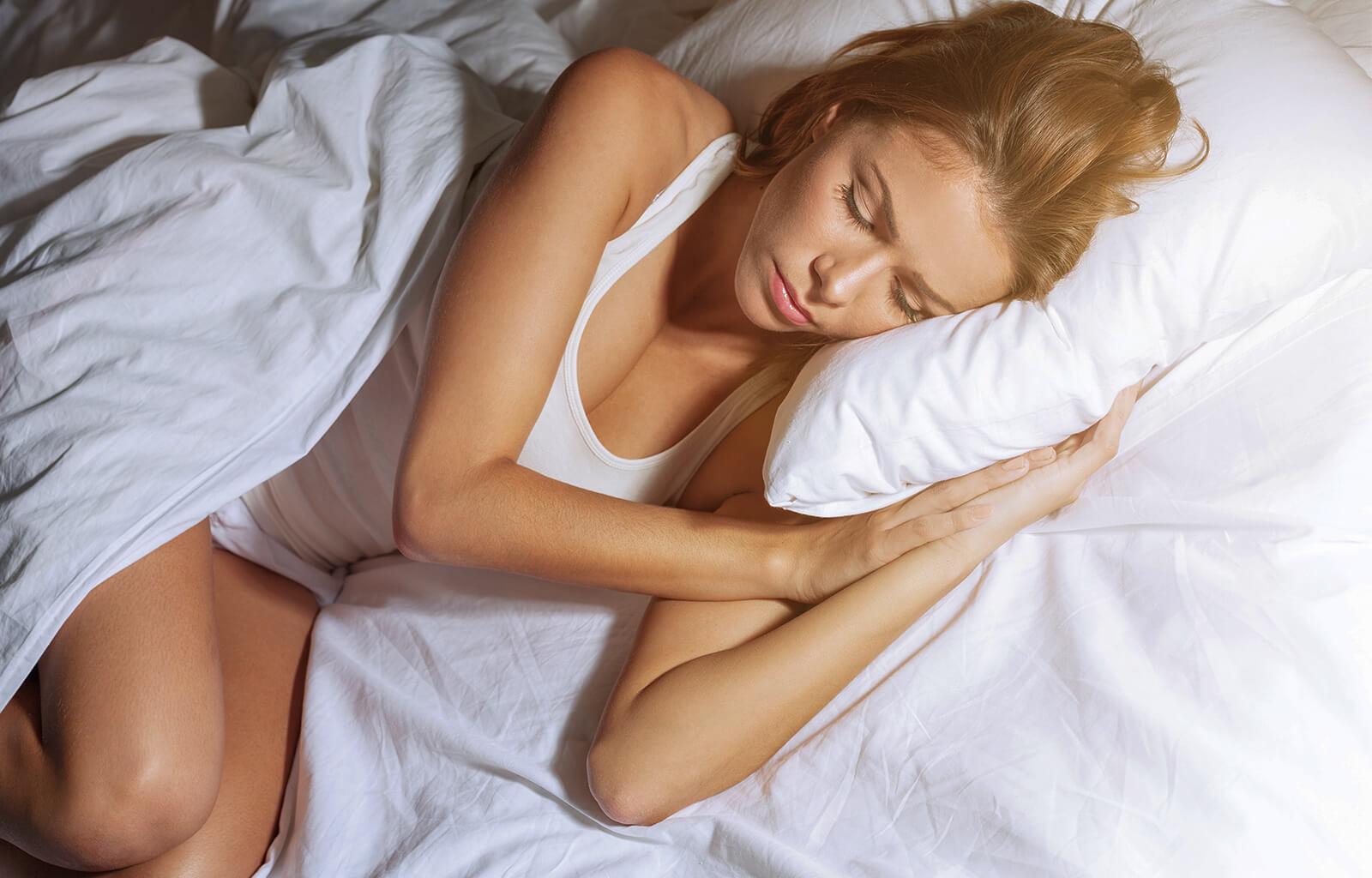
Creatine and sleep
Creatine is considered a miracle drug among athletes for increasing performance, muscle growth, and recovery. However, less well-known is the fact that creatine can also positively influence our sleep. Learn more about creatine and why you and your sleep can benefit from creatine supplementation, even if you're not an athlete.
Table of contents
- Creatine
- What is creatine?
- How does creatine work?
- Creatine & Sleep
- Creatine as a dietary supplement
- Side effects of creatine
- Conclusion
1. Creatine & Sport
Creatine is known as an effective means of improving muscle recovery and building, and is often promoted as an effective dietary supplement for competitive and recreational athletes for the purpose of increasing strength and performance. For a long time, however, taking creatine supplements was considered unsafe, but numerous scientific studies have helped establish creatine as a safe, performance-enhancing agent for promoting muscle growth and during intense exercise.
What many people don’t know, however, is that creatine has many other effects on our body and can also have a lasting impact on our sleep.
2. What is creatine?

Creatine (Greek kreas: "flesh") is a natural organic acid that our bodies produce and can also absorb through food. It serves primarily as an energy source and is therefore stored at more than 90% in our muscle cells, where it serves as an energy reserve to be activated and used during short-term, intense exercise.
3. How does creatine work?

Physical performance improvement and muscle building
Basically, creatine provides the body with additional energy, allowing it to maintain performance despite physical and cognitive stress. The creatine stored in muscle cells is activated during intense physical exertion precisely when "normal" energy reserves are depleted. It also helps the muscles relax more quickly after the necessary strain. In this way, a well-filled creatine store can support muscle function and increase physical performance over a short period of time, especially during exertion lasting between 2 seconds and 2 minutes.

Creatine also has a long-term effect by influencing the metabolism and growth processes of the muscles and ensuring that more muscle mass is formed and muscle strength can increase.
Mental: Cognitive performance improvement and regeneration
Adequate energy supply is also crucial for the proper functioning of our brain cells and the central nervous system, as the brain can consume up to 20% of our body's total energy expenditure. Just as in the body itself, creatine can help replenish energy stores in the brain and protect cells from exhaustion. Various studies also show that creatine can, among other things, improve cognitive brain functions (e.g., memory and intelligence), increase mental stress tolerance, and delay mental fatigue.
4. Creatine & Sleep
How
Creatine now provides the body with additional energy and accelerates the replenishment of energy stores in our brain and muscle cells. This allows the body and mind to return to performance more quickly and begin subsequent regeneration processes. Creatine as a dietary supplement can therefore help the body initiate its important repair functions more quickly and restore a healthy and rested state. Other scientific studies have also found improved regeneration through the intake of creatine when the body has less time to recover during sleep due to lack of sleep. The test subjects' personal perception of fatigue was also reduced by taking creatine.
Did you know that sleep and exercise have an exciting interaction and can each have a positive influence on each other? this article you will learn how exercise promotes sleep.
5. Creatine as a dietary supplement
Our bodies produce small amounts of creatine themselves, and a further portion can be obtained through the consumption of animal products (especially fish and meat). However, since we are capable of storing far more creatine than we produce or absorb ourselves, taking a supplement can be beneficial, especially if you follow a vegan or vegetarian diet, to replenish your body's creatine stores and provide more creatine. Today, you can usually find creatine in capsule or powder form.

The dosage for creatine supplementation depends, among other things, on your diet, physical condition, and goals. The body produces approximately 1-2 g of creatine itself and can store up to 5 g in total. A daily dose of 3-5 grams of creatine is considered safe and well-tolerated by the European Food Safety Authority.
6. Side effects of creatine
Healthy individuals generally do not experience any side effects from supplemental creatine intake. The substance is one of the most thoroughly researched dietary supplements and is generally considered safe and well-tolerated at the recommended dose. However, excessive dosages of more than 20 grams per day can lead to abdominal pain, diarrhea, or vomiting. An overdose is not advisable anyway, as the body cannot store more than 5 grams of creatine per day and simply excretes any excess.
Danger: When you first start taking creatine, you should make sure you drink enough fluids. Creatine binds and stores water in your muscles, so you should expect some weight gain with regular use.
7. Conclusion
Creatine has established itself in competitive sports as an effective and safe supplement for maximizing physical strength and performance. Due to its function as an energy source, creatine not only supports intense physical exertion but can also have a positive effect on recovery during sleep.
-
Creatine is the body's natural energy source, 90% of which is stored in muscle cells
-
Creatine ensures short-term energy supply and thus promotes physical performance, muscle building and regeneration after intensive exercise.
-
Creatine influences the energetic balance in the brain and promotes cognitive performance, brain function and stress resistance and also reduces fatigue.
-
During sleep, creatine accelerates energy production and regeneration, thus reducing the need for sleep.
-
A daily dose of 3 g to 5 g of creatine per day is considered safe and well tolerated.
Best wishes and see you soon!



1 comment
Excelente información.
Gracias.-
Eduardo Montero
Leave a comment
This site is protected by hCaptcha and the hCaptcha Privacy Policy and Terms of Service apply.